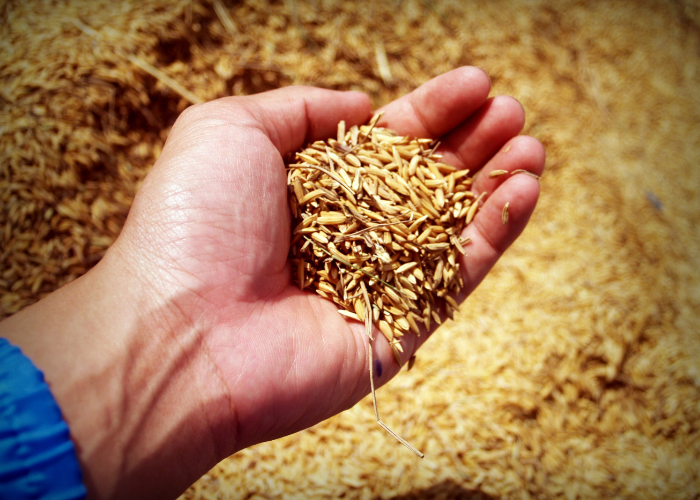Be ready: the grain war will come to our backyardsBY PIETRO PAGANINI
- 31 May 2022
- Posted by: Competere
- Category: Senza categoria

Article published on Formiche.net
The blockage of the Odessa port, record droughts in India and Indonesia, the bottlenecks along supply chains caused by the Russian war in Ukraine. Fasten your seatbelts: there is a global food crisis that is about to knock at our door.
Many governments among those countries that produce agricultural raw materials are stopping exports. Domestic prices are rising and citizens do not have access to foods that travel on parallel markets to benefit from international speculation. The consequences of global trade can be devastating, especially on the poorest countries. We urgently need to understand the problem and help producing countries to better manage their supply chains.
Many countries that export cereals and vegetable fats are slowing or altogether interrupting exports toward the rest of the world. Many areas of the planet, especially those less developed, risk to jeopardize their food security: they will not have access to the nutrients required for a healthy and balanced diet anymore. Economic and social crises are on the rise. And yet, both cereals and vegetable oils are produced in abundance.
It is of the utmost urgency for us to understand trade dynamics, their strengths and weaknesses, so as to prevent any other blockage. Embargos on exports cause hunger, which in turn leads to social and economic crises. Trade guarantees stability and promotes prosperity and democratization. We must find technological and political solutions that favor continuity within global trade.
India, the world’s second producer of cereals, has blocked its export. Indonesia stopped exporting palm oil, of which it is the world’s first producer, for over four weeks (it reopened on May 23rd). Many other exporting countries will soon follow suit.
Indians and Indonesians, particularly the lower income and rural citizens, have been protesting for months because they cannot find or afford the wheat and palm oil they need to cook. And yet, both India and Indonesia produce sufficient quantities for both internal consumption and export.
India produces about 105MT (in 2021/22 against 9.6MT in 2021/21) of wheat and exports about 8MT (2021, against 2.6MT in 2020). Indonesia produces about 56MT of palm oil. 5.6MT of cooking oil (24,000 IR/L), of which 2.6MT is subsidized by the state for the lower income class (14,000 IR/L). Both countries are big in size and population, with distribution chains that are long, fragmentated, informal and full of intermediaries. It is a challenge to distribute efficiently and with a grip on prices.
When global market prices rise significantly, it becomes convenient to reroute goods that are usually subsidized to parallel or export markets. In doing so, domestic prices rise despite subsidies and goods do not arrive to the planned destination. Governments are forced to intervene with political but anti-economic choices: blocking exports to ensure domestic supply at fixed prices.
The problem can only be partly solved and risks to provoke collateral effects that vary according to the good and nation at hand. Controlling the market dynamics do not always lead to a quick price reduction. A prolonged interruption of exports, especially concerning massive volumes, can weaken the supply chain and the productive capacity. It can disproportionately affect supply chain workers, who fall deeper into poverty and are forced to request government intervention and subsidies. Excises on exports finance subsidies to reduce the prices of the domestic market.
In Indonesia, the block lasted less than 4 weeks: it was lifted when reserves filled up (5MT) and the process of harvesting and refinement faltered. It will probably last longer in India, maybe until the next harvest in October, because the lifecycle of wheat is seasonal rather than continuous.
Other countries are following the example of India and Indonesia, with some trying it from within the EU. Distribution problems are minor, but the fear of running out of goods is intense. And it grows with the intensification of variables of risk: weather crisis (India), supply problems, intermittent interruptions of the global chains caused by pandemics, wars, and other crises.
We cannot afford policies of food subsidies. We do not have enough land to satisfy our needs. The battle for grain experimented by fascist Italy proved a disaster. We must come up with a strategic plan for food commodities. We must produce domestically, as much as possible but in a balanced way. We must buy from abroad while ensuring that our supply channels are resilient, safe, convenient, and sustainable.
We must collaborate with producing countries to invest in the structure and dynamics of supply chains. We must invest in innovation and technology to favor sustainable nutrition, increase productivity, and preserve biodiversity. Governments and businesses must work together on a global scale.
PS. As citizens, we must waste less and be more aware.

